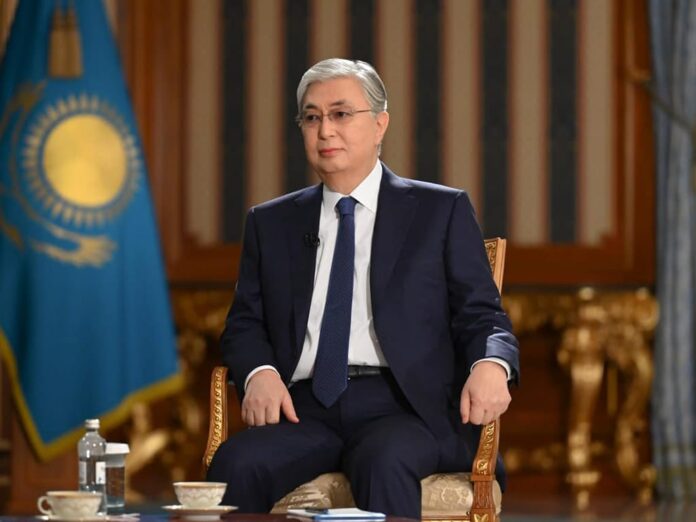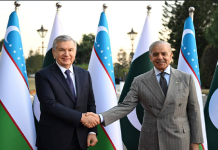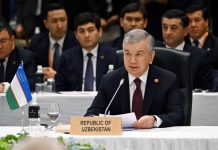By Raza Syed
In a recent interview, Kassym-Jomart Tokayev, President of Kazakhstan, outlined the goal to switch to a new economic model and to double the GDP by 2029, reaching up to $450 billion. GDP per capita in 2023 was almost 13 thousand dollars. According to the IMF forecast, by 2028 this figure will increase to 16.8 thousand dollars.
In order to achieve these ambitious aims, the President outlined two main approaches to economic management.
In the first place, implementation of large industrial projects and preparation of an Infrastructure Development Plan will be undertaken. These projects are being studied and consultations are being held with large businesses, institutional investors and the expert community.
It is also necessary to solve the important problem of attracting investment, including privatization and return of assets. On December 4, President signed a decree regarding measures to increase the efficiency of attracting investment into Kazakhstan’s economy. An Investment Headquarters has also been created recently, endowed with broad powers to improve the investment climate and the high-quality implementation of investment projects.
Another important measure is the carrying out of systemic reforms in order to consolidate new “rules of the game” for the entire economy. The government, on the instructions of the President, is developing a new Tax Code designed to restart the relationship between the state and business. The focus in this regard is to achieve a balance needed between creating comfortable conditions for investors and maintaining the required level of budget revenue. Tokayev emphasized that the new laws on public procurement and public-private partnerships were considered crucial for transparency and financial stability.
Kazakh President said, “The political reforms launched in Kazakhstan and the democratization of Kazakhstani society is creating a predictable market for foreign investors.”
The reforms included following measures;The National Council of Public Trust was formed. Amendments have been made to the law on elections, political parties, and Parliament.
One of the main objectives of the reforms was the formation of a more fair and balanced political system. To this end, within the framework of the constitutional reform, several barriers were established: the Constitutional Court was recreated; the seven-year term for the President is unchanged and the powers of Mazhilis were significantly expanded.
After the adoption of the new law on rallies, instead a permitting one, a notification procedure for peaceful rallies was introduced.
Refuting the rumors about a referendum on the Constitution of the Republic of Kazakhstan, the President maintained that change of power, even by amending the Constitution, leads to stress for both the business community and investment companies. Therefore, such practice is not pragmatic for Kazakhstan, where the countries authorities maintain their obligations to the international community and a fairly active civil society has been formed, which was especially evident after the January events.
In foreign matters, Kazakhstan, the president stated, continues to adhere to a multi-vector policy to maintain a balance between important geopolitical players (PRC, Russia and Western countries).
The Kazakhstan President maintained that in the current difficult geopolitical conditions, it is important for Kazakhstan to develop mutually beneficial and pragmatic cooperation with all foreign partners, especially, neighbors.
Referring to the relevance of the “C5+” format, President opined that Central Asia was a dynamically developing region with its own vision of geopolitical realities, wide opportunities in trade, investment, business, and innovation. That is why interest in Central Asia is significantly increasing in the world, and the demand for the C5+ dialogue platform is increasing.
Tokayev mentioned that in 2024 Kazakhstan will chair several influential regional and international organizations and associations (SCO, CSTO, IFAS, etc.). An important event will be the Astana International Forum in June of this year with the participation of leaders of a number of states and global companies.
President Tokayev addressing a conference on climate change conveyed Kazakhstan’s strong commitment to addressing global climate challenges and outlined key initiatives.
On the occasion the President highlighted that Kazakhstan became the first country in the region to ratify the Paris Agreement and adopt the 2060 Carbon Neutrality Strategy. He mentioned the country’s new Environmental Code, which aims to facilitate the comprehensive adaption of green technologies in almost every sector of the national economy.
Emphasizing the country’s support for private green initiatives, Tokayev cited Kazakhstan’s Packers Association, which works on projects to eliminate plastic waste, contributing to environmental protection.
The President also announced Kazakhstan’s decision to join the Global Methane Pledge, recognizing the reduction of methane emissions as the fastest way to slow global warning. He called on international partners to provide concrete support for these initiatives and urged an expansion of commitments to increasing climate finance.
“Even if we manage to limit global temperature rise to 1.5 degrees by 2050, Central Asian countries will still face a temperature rise of up to 2.5 degrees. This will lead to water shortages, extreme heat, desertification, and extreme hydrological events,” Tokayev maintained.
The agreement with France, on the sidelines of the UN General Assembly, on the joint organization of the International Forum “One Water Summit”, which is designed to contribute to the global climate agenda, is of great importance.
As a consequence of policies, reform programs and structural changes launched, in recent years, by Kazakhstan in sectors like economy, politics, environment and foreign affairs, it is hoped that the country will emerge on world scene as a more powerful, responsible and respectable country. The country is ready to play its role to bring harmony, maintain peace, and work for stability in an otherwise fast becoming unstable world.






